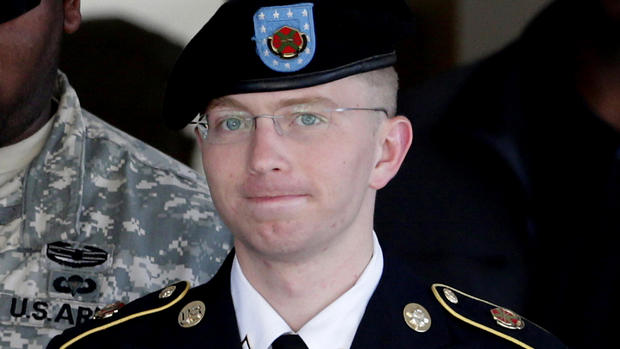Army general: Manning's leaks hurt relationships with Afghans
FORT MEADE, Md. The classified information Pfc. Bradley Manning revealed through WikiLeaks fractured U.S. military relationships with foreign governments and Afghan villagers, a former general said Wednesday at the soldier's sentencing hearing.
It was the first time testimony about the actual damage the leaks may have caused has been allowed at trial.
Retired Army Brig. Gen. Robert Carr said the material Manning leaked identified hundreds of friendly Afghan villagers by name, causing some of them to stop helping U.S. forces.
"One of our primary missions is to protect the population over there," said Carr, who led a Defense Department task force that looked at the risks of the leaks. "We had to get close to the population, had to understand that population and we had to protect them. If the adversary had more clarity, as to which people in the village were collaborating with the U.S. forces, then there is a chance that those folks could be at greater risk."
The former intelligence analyst was convicted of 20 of 22 charges for sending hundreds of thousands of government and diplomatic secrets to WikiLeaks and faces up to 136 years in prison. He was found not guilty of aiding the enemy, which alone could have meant life in prison without parole.
- Assange: Manning conviction a "dangerous precedent"
- Bradley Manning's lawyer: He's a whistleblower
Manning's defense is hoping for a much shorter prison sentence and asked the military judge hearing the case to merge two of his espionage convictions and two of his theft convictions. If Army Col. Denise Lind agrees to do so, he would face up to 116 years in prison. CBS News correspondent Bob Orr reports Manning will likely spend years in prison.
Carr said the Taliban executed one Afghan national, saying it had tied the man to the list of villagers, but the general couldn't find his name in the material Manning leaked.
"We went back and searched for his name in the disclosures. The name was not there," Carr said.
The defense objected and the judge said she would disregard that part of his testimony.
Carr also said the leak of cables hurt relationships with other countries because the U.S. had to negotiate with them in order to bring supplies into war zones.
Some of the cables "were very blunt and sometimes critical of how that particular host nation responded, so that created some fractures between our ability to get in there and communicate."
Military prosecutors said they would call as many as 20 witnesses for the sentencing phase. The government said as many as half of the prosecution witnesses would testify about classified matters in closed court. They include experts on counterintelligence, strategic planning and terrorism.
The release of diplomatic cables, warzone logs and videos embarrassed the U.S. and its allies. U.S. officials warned of dire consequences in the days immediately after the first disclosures in July 2010, but a Pentagon review later suggested those fears might have been overblown.
The judge also restricted evidence about Manning's motives. Manning testified during a pre-trial hearing he leaked the material to expose U.S military "bloodlust" and diplomatic deceitfulness, but did not believe his actions would harm the country. He didn't testify during the trial, but he could take the stand during the sentencing phase.
